Night-Time Incontinence: How to Ensure a Dry and Restful Sleep

Waking up to wet sheets can be distressing, disruptive, and even damaging to one’s confidence and wellbeing. For many seniors and individuals managing incontinence, night-time is when accidents are most likely to happen.
The result? Sleepless nights, skin irritation, and a whole lot of laundry.
But here’s the good news: with the right products, planning, and a little practical know-how, a dry and restful sleep is absolutely possible.
In this guide, we’ll walk you through why night-time incontinence happens, how to prevent leaks, and the best tools and strategies for keeping your loved ones (or yourself) comfortable and confident through the night.
Whether you’re a family caregiver, healthcare provider, or someone navigating these changes firsthand, this blog is here to help you create better nights and brighter mornings.
What Causes Night-Time Incontinence?
Night-time incontinence—also known as nocturnal enuresis or bed-wetting—is more common than many realise, especially among older adults. While it’s often associated with childhood, adult bed-wetting can be triggered by a range of physical, neurological, and lifestyle-related factors.
Here are some of the most common culprits behind those disruptive overnight leaks:
1. Nocturia (Frequent Night-Time Urination)
One of the most common causes of night-time incontinence is nocturia, the frequent need to get up and urinate during the night. According to the Continence Foundation of Australia, this condition becomes increasingly prevalent with age and is often linked to an overactive bladder, poor sleep, or reduced bladder capacity. When the urge to go is urgent and mobility is limited, accidents can happen before reaching the toilet.
2. Overproduction of Urine at Night (Nocturnal Polyuria)
Sometimes, the body produces too much urine during the night, a condition known as nocturnal polyuria. It may be related to certain medications (like diuretics), medical conditions (such as heart failure or diabetes), or simply age-related changes in the body’s natural circadian rhythm.
3. Underlying Medical Conditions
A range of health issues can contribute to night-time incontinence. These include:
- Enlarged prostate (in men)
- Urinary tract infections (UTIs)
- Sleep apnoea
- Chronic constipation
- Neurological disorders (like Parkinson’s or stroke)
As the Mayo Clinic explains, conditions that affect bladder nerves or the communication between the brain and bladder can reduce the ability to wake in time to void.
4. Deep Sleep Patterns or Sleep Disorders
Some individuals sleep so deeply that they don’t respond to bladder signals. According to WebMD, this can lead to bed-wetting episodes even in otherwise healthy adults. Others may experience incontinence linked to sleep disorders such as insomnia or restless leg syndrome, which can disrupt normal bladder function.
5. Emotional and Psychological Stress
While physical health is a key factor, it’s important not to overlook the role of stress and emotional health. As noted by the Sydney Pelvic Clinic, anxiety, grief, trauma, and even lifestyle upheavals can trigger or worsen episodes of night-time incontinence. In some cases, bed-wetting can be the body’s response to unresolved emotional tension or mental fatigue.
6. Mobility or Cognitive Impairments
For many seniors and individuals living with dementia or limited mobility, the issue may not be a full loss of bladder control, but the inability to get to the toilet in time. Add dim lighting, unfamiliar surroundings, or nighttime confusion into the mix, and the risk of bed-wetting increases significantly.
Understanding the root cause of night-time incontinence is the first step in choosing the right support. Whether it’s medical treatment, better overnight aids, or simple bathroom access adjustments, identifying the “why” helps guide the “how.”
How Can You Prevent Night-Time Incontinence and Ensure Better Sleep?
While incontinence may feel like a frustrating part of getting older or managing certain health conditions, the good news is that there are practical ways to reduce night-time leaks and help your loved one get the uninterrupted rest they deserve.
Here are smart, evidence-based strategies to minimise overnight accidents—without sacrificing dignity or comfort.
1. Limit Fluid Intake in the Evening—but Stay Hydrated During the Day
It might seem obvious, but cutting down on drinks 2–4 hours before bedtime can significantly reduce the chances of night-time leakage. According to Better Health Channel, it's important to drink adequate water throughout the day—just not late in the evening. Dehydration can actually make incontinence worse by irritating the bladder.
Tip: Encourage your loved one to finish most of their hydration by early evening, rather than cutting fluids entirely.
2. Avoid Caffeine, Alcohol, and Fizzy Drinks
Caffeinated and carbonated beverages—as well as alcohol—are diuretics that stimulate urine production. As the Mayo Clinic Health System highlights, these can worsen bladder control problems and should be avoided later in the day.
Tip: Swap that afternoon coffee for herbal tea or decaf to prevent bladder irritation.
3. Use the Toilet Twice Before Bed
Known as double voiding, this technique involves using the toilet, waiting a few minutes, and trying again. According to PS Healthcare, this helps ensure the bladder is truly empty before bed—and it can prevent those early-morning accidents.
Tip: Build this habit into a relaxing bedtime routine—perhaps paired with skincare or pyjama time.
4. Elevate the Legs Before Bed
If your loved one experiences swelling in their legs, that fluid can redistribute at night and increase urine output. Elevating the legs an hour before bed may reduce this, as noted by PS Healthcare.
Tip: Use a wedge pillow or ask your healthcare provider for a safe method of leg elevation.
5. Establish a Night-Time Toilet Schedule
Waking once during the night to use the toilet—at a pre-determined time—can help reduce full-bladder accidents. This “timed voiding” strategy can be particularly helpful for those with mild cognitive impairment or mobility issues.
Tip: Set a gentle alarm or create a consistent toilet schedule to empty the bladder before it becomes urgent.
6. Address Constipation
Chronic constipation can put pressure on the bladder and worsen incontinence. The Better Health Channel recommends high-fibre foods, plenty of fluids, and regular movement to help keep bowel health in check.
Tip: Consider fibre-rich snacks like fruit, oats, and vegetables—and consult a GP if constipation is ongoing.
7. Check for and Manage Underlying Conditions
Night-time incontinence may be a symptom, not just a standalone issue. Conditions like diabetes, sleep apnoea, bladder infections, and prostate issues can all play a role. That’s why it’s important to work closely with your GP or continence specialist to rule out medical causes.
Tip: Don't delay a doctor’s visit if the person you’re caring for experiences new or worsening symptoms.
What Essentials Help You Sleep Through the Night Without Leaks?
Managing night-time incontinence is about more than just protection—it’s about restoring peace of mind. Whether you’re shopping for yourself, a loved one, or a client, these tried-and-tested incontinence care essentials can make all the difference between a restless night and a truly restorative one.
Here are some of our most trusted night-time products, all chosen for their absorbency, discretion, and comfort:
1. TENA Bed Underpads
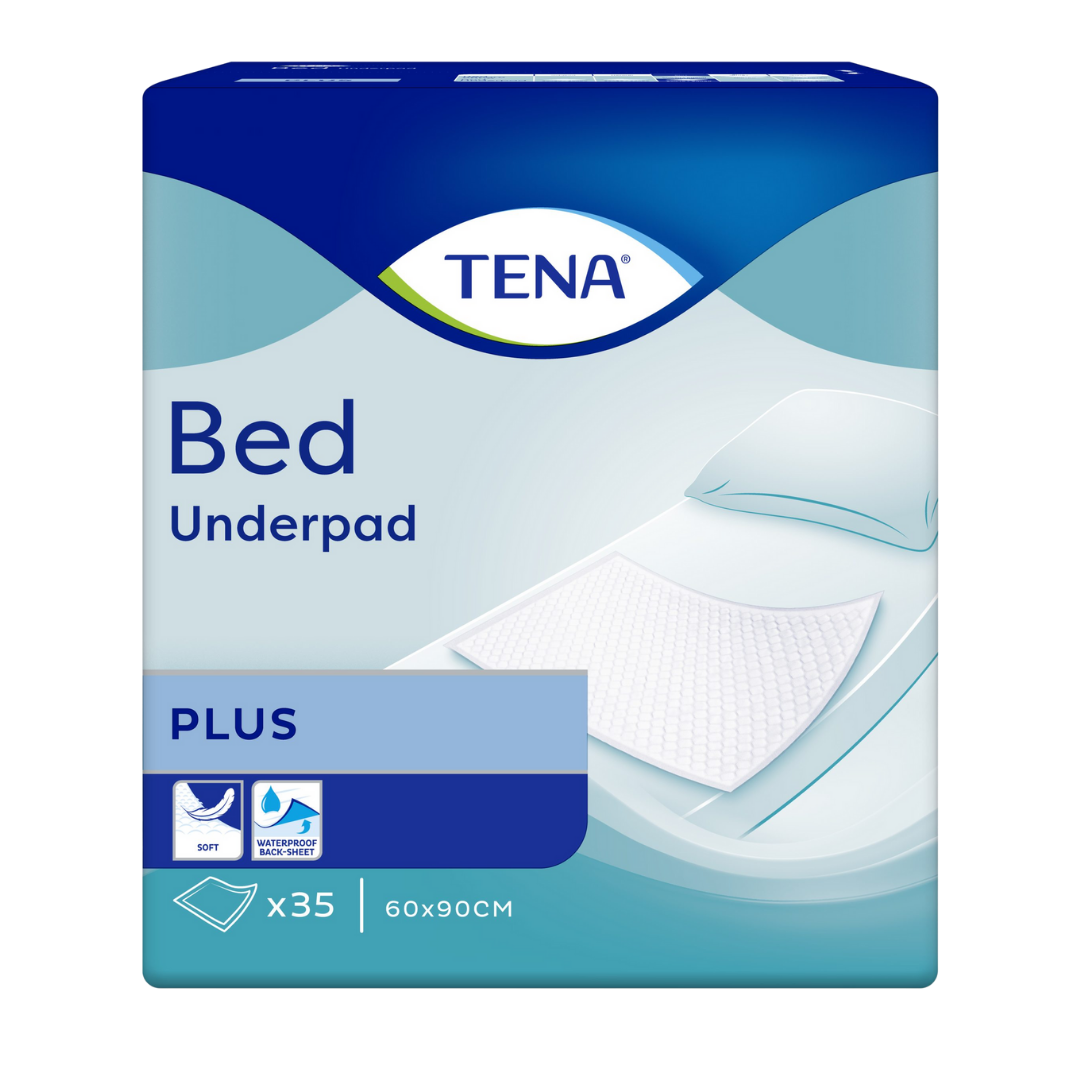
Why you’ll love it:
Think of this as your mattress's insurance policy. These waterproof, ultra-absorbent bed pads are designed to catch any leaks that escape pull-ups or pads during the night. The result? A dry bed, less laundry, and peace of mind.
Benefits:
- Protects bedding and mattresses from overnight accidents
- Soft, skin-friendly surface reduces irritation risk
- Ideal for backup protection under or over fitted sheets
Best for:
Anyone looking to prevent sheet changes at 2 a.m.—especially helpful for carers managing limited mobility.
2. TENA Men Active Fit Absorbent Protector
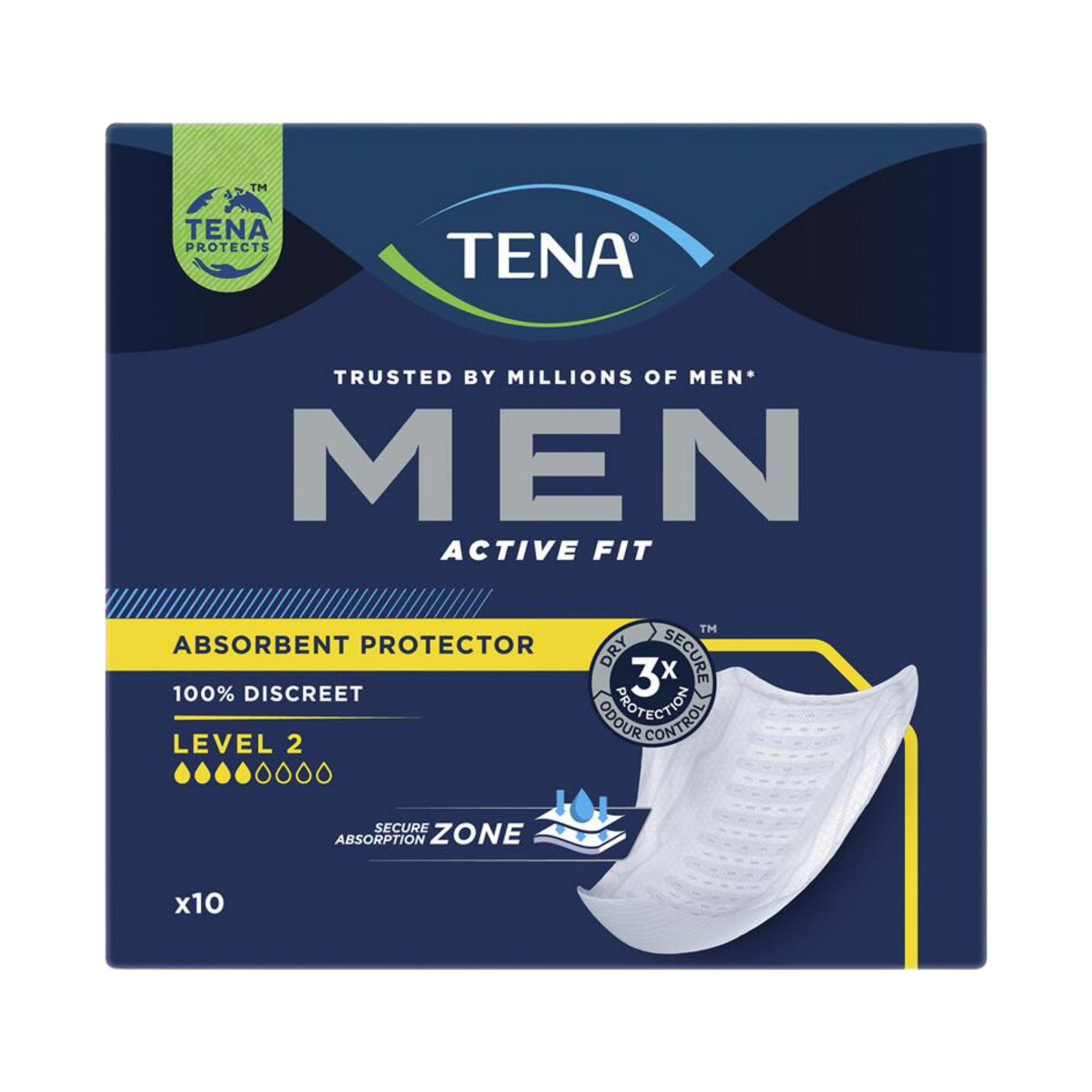
Why you’ll love it:
Designed to contour to the male anatomy, this discreet insert offers targeted protection without bulk. It’s perfect for light to moderate leakage overnight, especially for men who prefer not to wear full briefs.
Benefits:
- Slim profile for undetectable protection
- Odour-locking and moisture-wicking core
- Comfortable to wear with regular underwear
Best for:
Men seeking lightweight, invisible overnight protection with peace of mind.
3. Abena Pants – Pull-Up Night Protection
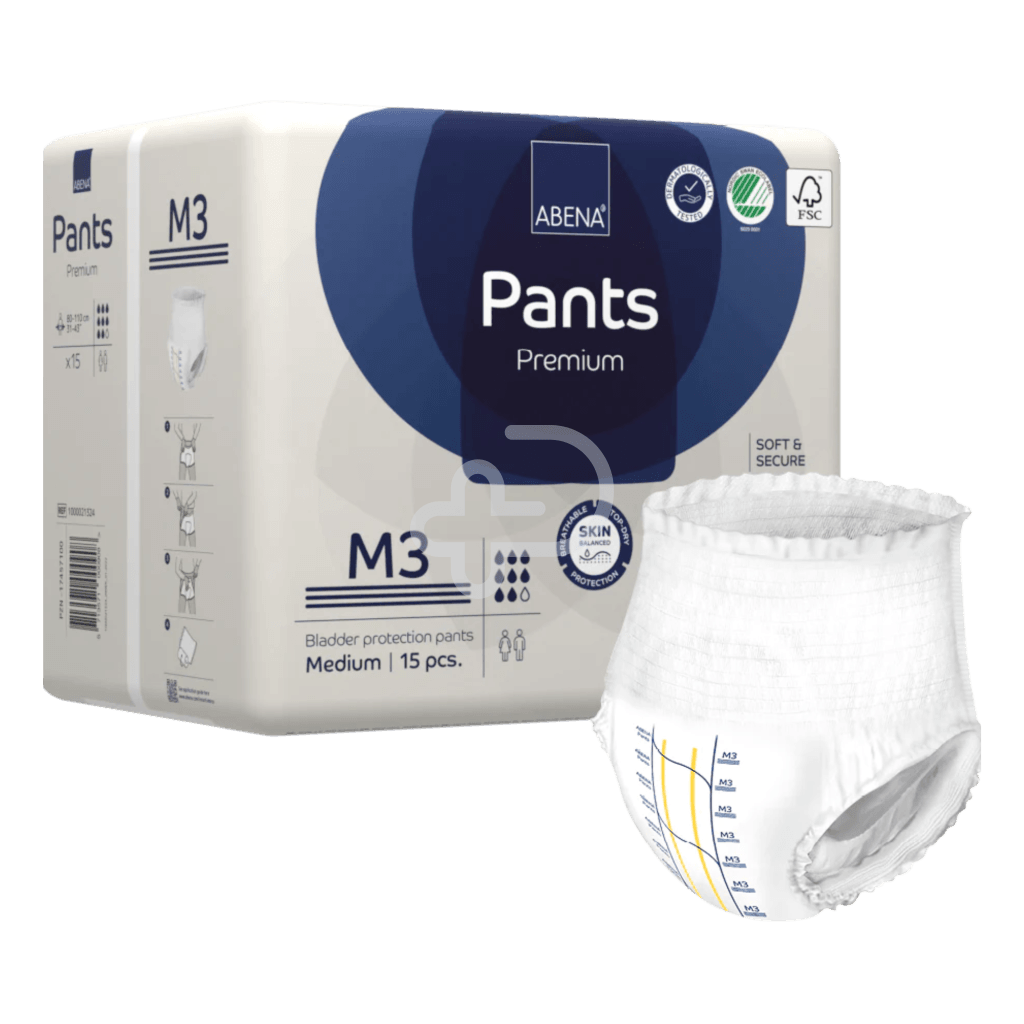
Why you’ll love it:
These premium pull-up pants are like regular underwear—but engineered to handle heavy overnight leakage. With up to 2.4L capacity, they offer hospital-grade absorbency that helps users stay dry till morning.
Benefits:
- Holds more fluid than standard pull-ups
- Soft, breathable fabric reduces risk of skin irritation
- Moves with the body for natural sleep comfort
Best for:
Older adults, carers, or anyone who needs serious protection without sacrificing comfort.
4. iD Pants Maxi – Heavy Absorbency Meets All-Night Comfort
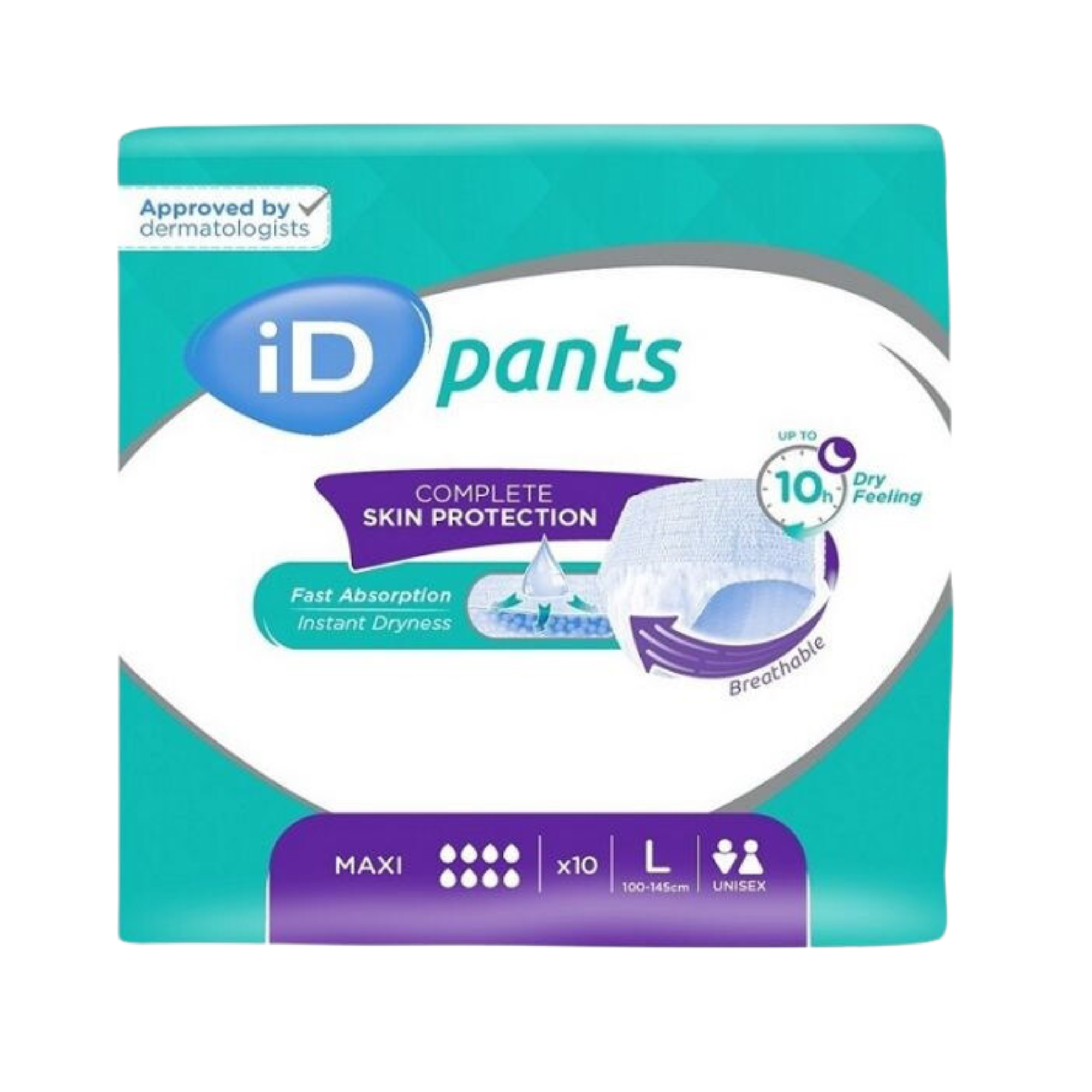
Why you’ll love it:
These pants do the heavy lifting when nighttime accidents are frequent or substantial. They’re trusted by professionals for their secure fit, high absorbency, and breathable design—allowing users to wake up refreshed and dry.
Benefits:
- Discreet design with superior fluid retention
- Odour control for fresh, undisturbed sleep
- Comfort-stretch waistband for secure overnight wear
Best for:
People with heavy incontinence who need dependable protection through the night.
5. Poise Thin & Discreet Ultra Long Pads
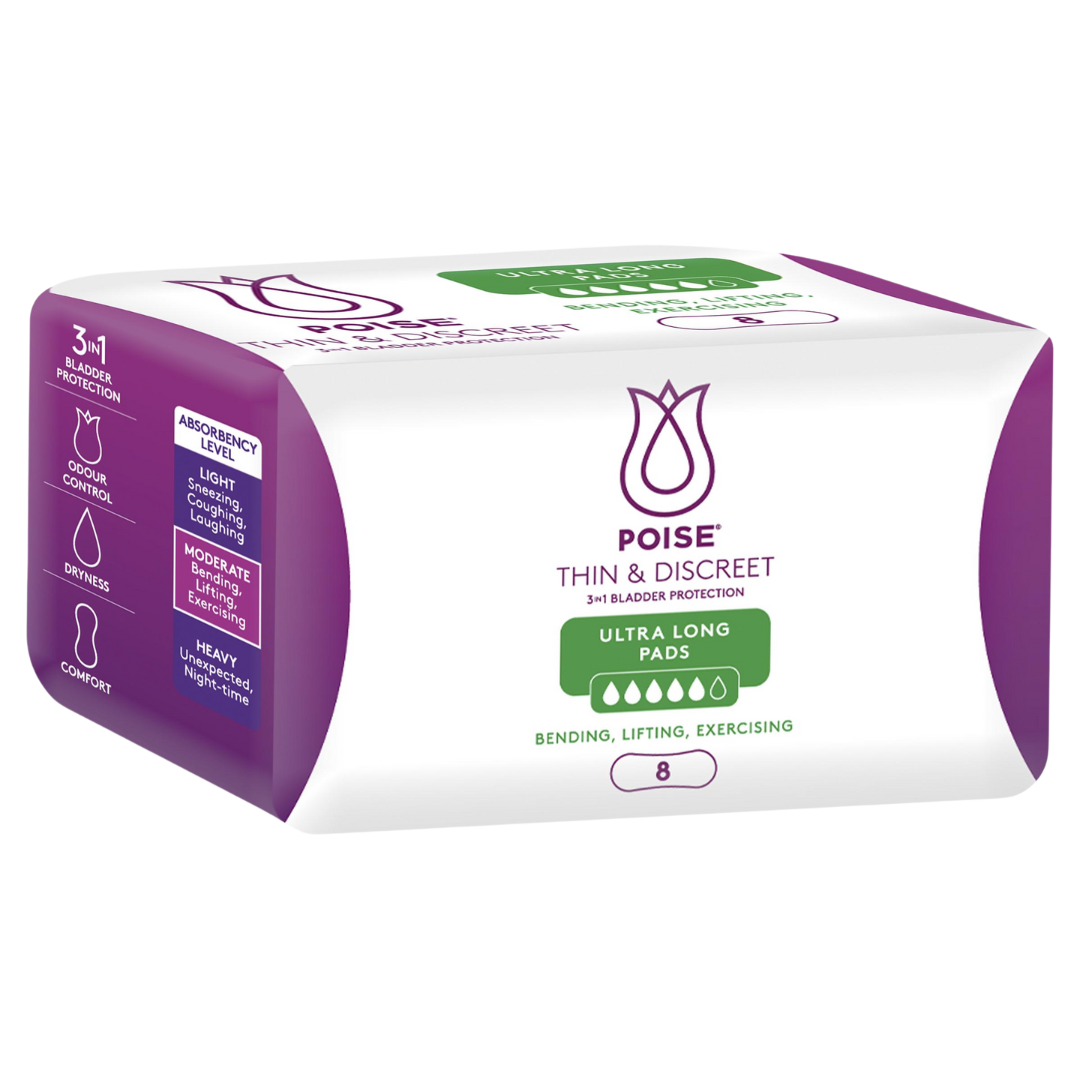
Why you’ll love it:
If bulky pads aren’t your thing, these ultra-long, ultra-thin pads still deliver impressive absorbency. With targeted leak protection and a soft, gentle feel, they’re ideal for light to moderate night-time bladder leakage.
Benefits:
- Longer length = better back and side coverage in bed
- Locks moisture away and neutralises odour
- Flexible fit that stays in place even with tossing and turning
Best for:
Women experiencing mild to moderate night-time leakage who want minimal bulk.
6. Huggies DryNites Pyjama Pants
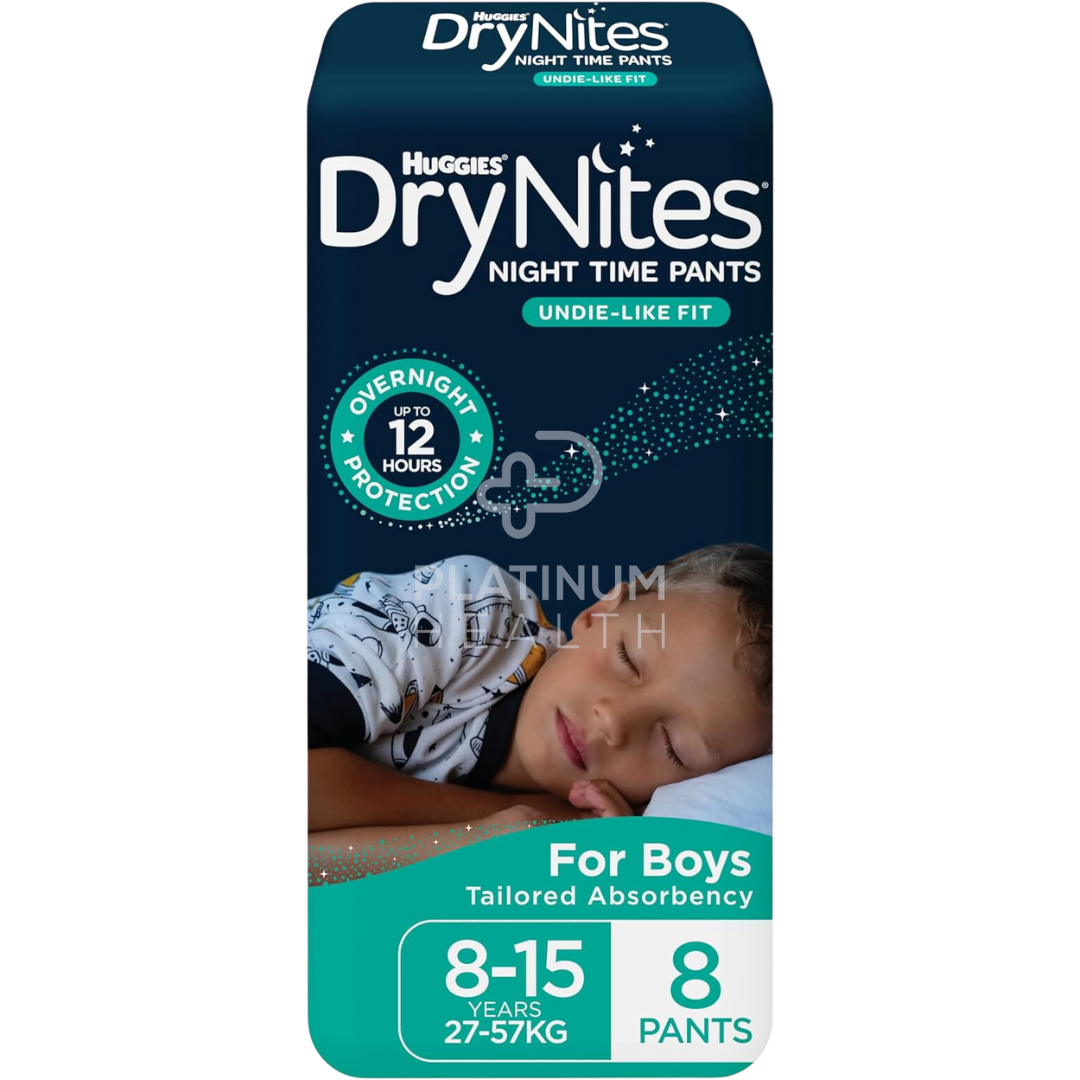
Why you’ll love it:
These pyjama pants help kids and teens with night-time wetting sleep with confidence. Soft, quiet, and designed to feel like real underwear, they offer overnight protection without the stigma.
Benefits:
- Stretchy sides for a comfy, secure fit
- Feels and looks like real PJs
- Great for sleepovers or school camps
Best for:
Children and teenagers managing nocturnal enuresis (bed-wetting) with dignity and confidence.
Is Incontinence Support Funded in Australia?
Yes—and if you or your loved one is managing night-time incontinence, you may be eligible for financial assistance through government-funded programs designed to make continence care more accessible.
Continence Aids Payment Scheme (CAPS)
The Continence Aids Payment Scheme (CAPS) is a government initiative that provides an annual payment to eligible Australians to help cover the cost of continence products, such as absorbent pads, bed protection, and personal hygiene items. This is especially helpful for individuals with long-term or permanent incontinence needs.
You may qualify if you:
- Have permanent or severe incontinence due to a neurological or other medical condition
- Are over the age of 5
- Are an Australian citizen or permanent resident
Learn more about CAPS on the Department of Health website
Visit the Continence Foundation of Australia for CAPS details
National Continence Program (NCP)
The National Continence Program aims to improve access to support services and education for people living with incontinence, as well as their carers and healthcare providers. While it does not directly provide funding for products, it funds continence services and resources nationwide to help you better manage the condition.
Explore the National Continence Program
Tip: If you're supporting someone through a Home Care Package or are an NDIS participant, continence support products may also be covered under your plan. Speak with your care coordinator or case manager to find out how to include continence aids in your funding arrangements.
Rest Easy with the Right Night-Time Incontinence Support
Managing night-time incontinence isn’t just about staying dry—it’s about preserving comfort, dignity, and uninterrupted sleep. Whether you're a carer supporting a loved one or navigating incontinence yourself, choosing the right combination of products makes all the difference.
From ultra-absorbent pull-ups and bed pads to discreet liners and protective pyjama pants, there’s a solution that fits your needs and lifestyle. The key is knowing your options—and knowing you’re not alone.
Try Before You Buy – Visit Us in Epping!
Still unsure which product is best? Come see us in person! Our Epping showroom is stocked with a wide range of incontinence care essentials, including pull-ups, pads, waterproof bedding, and more.
Visit us at:
Unit 2/51 Trafalgar Road, Epping VIC
Weekdays, 9am–5pm
Our friendly team is here to guide you through continence aids choices, explain absorbency levels, and help you find a solution tailored to your routine—whether you need one pack or support for a full care plan.
Have questions about NDIS or aged care funding? We can help with that too.
Sleep soundly. Wake up confident.
We’ve got you covered.
